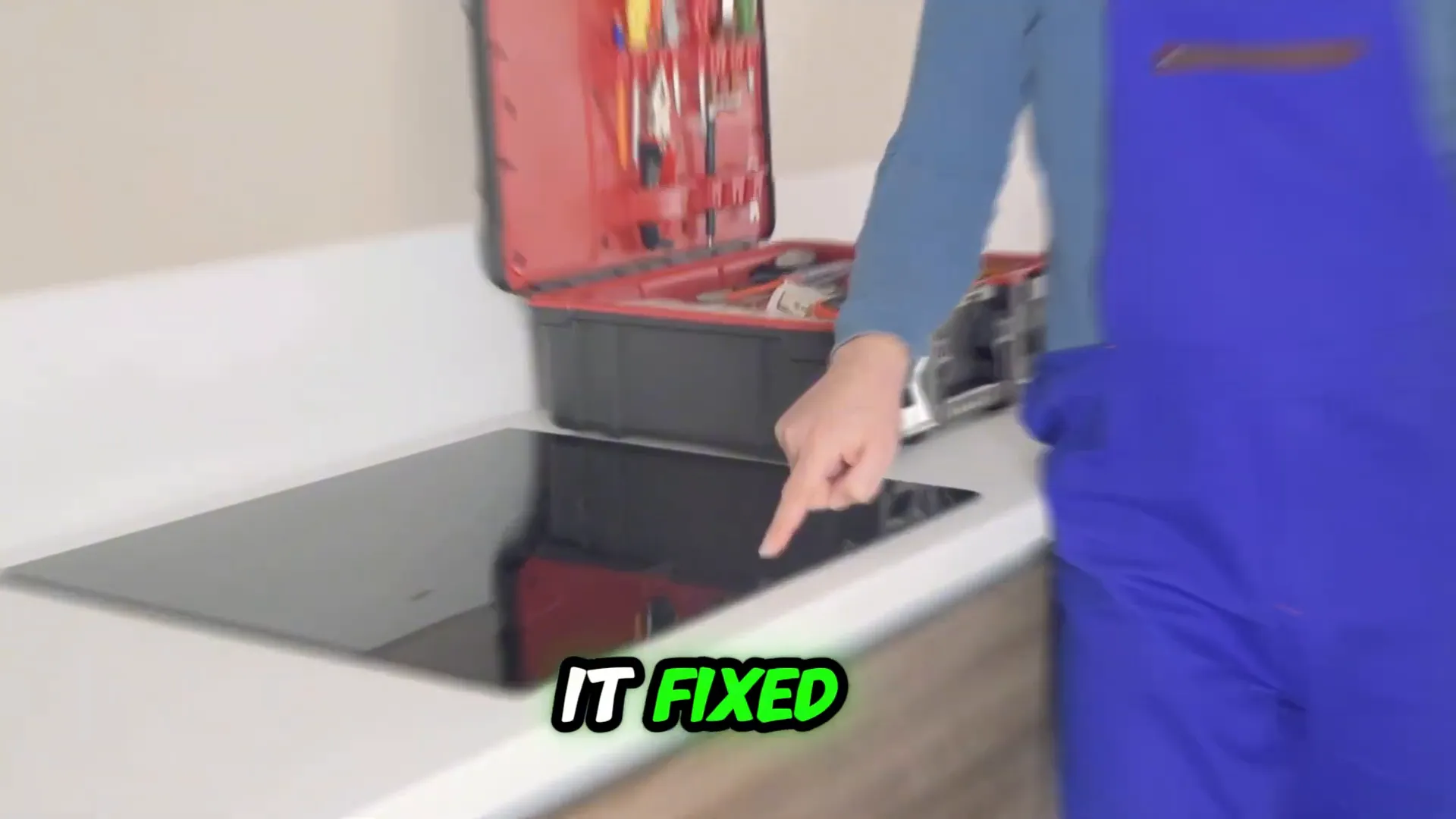Real Estate Market Trends 2025: Understanding Home Warranties to Avoid Costly Repairs
As the Real Estate Market Trends 2025 unfold, understanding how to protect your investment is crucial. Home warranties can safeguard homeowners from unexpected repair costs, but knowing the ins and outs can help you maximize their benefits.
🔑 Introduction to Home Warranties
Home warranties serve as a safety net for homeowners. They cover repairs or replacements of major home systems and appliances. This can be especially beneficial when unexpected breakdowns occur.
It's important to note that a home warranty is not a substitute for home insurance. While insurance protects against disasters like fire or theft, a warranty focuses on the functional aspects of your home, ensuring everything runs smoothly.
What Does a Home Warranty Cover?
- Plumbing systems
- Electrical systems
- Heating and cooling systems
- Major appliances like stoves, refrigerators, and dishwashers
By having a home warranty, homeowners can avoid hefty repair bills and enjoy peace of mind knowing that help is just a call away.
🆚 Home Warranty vs. Home Insurance
Understanding the differences between home warranties and home insurance is crucial for homeowners. While both provide protection, their coverage areas are distinctly different.
Key Differences
- Coverage Scope: Home insurance covers disasters and damages to your property, such as fire, theft, or natural disasters, while home warranties cover repairs and replacements of specific home systems and appliances.
- Costs: Home insurance premiums can vary significantly based on the home’s value and location, whereas home warranties typically have a fixed annual fee with additional service fees per claim.
- Claim Process: Home insurance claims often require a lengthy investigation, while home warranty claims are usually straightforward, involving a simple call to the warranty provider.
Understanding these differences can help homeowners make informed decisions about their protection strategy.
📅 The Importance of the 30-Day Rule
The 30-day rule is a crucial aspect of home warranties that every homeowner should be aware of. If a problem arises within the first 30 days of moving into a new home, the warranty provider may require documentation from the home inspection.
This rule helps determine whether the issue was pre-existing or a new problem. If the home inspection shows that an appliance was functioning correctly before the sale, the warranty should cover repairs.

What to Expect
- If a problem occurs within 30 days, be prepared to provide a copy of the home inspection.
- The warranty company may send a technician to assess the situation, often for a service fee.
Being proactive and understanding this rule can save homeowners from unnecessary expenses.
🔥 Real-Life Example: Stove Repair
To illustrate the importance of the 30-day rule, consider a real-life scenario. A client moved into a new property, and the stove stopped working the very next day. Fortunately, they had a home warranty.
The warranty company sent a technician to evaluate the issue. Since the stove was functioning during the home inspection, the repair was covered.

Lessons Learned
- Always keep records of your home inspection.
- Be ready to provide evidence that appliances were in working order before your move.
This example underscores the importance of understanding your warranty's terms and being prepared to advocate for yourself.
🔍 Understanding Pre-existing Conditions
Pre-existing conditions can complicate home warranty claims. If a problem is determined to have existed before the warranty coverage began, it may not be covered.
Homeowners need to be aware of what constitutes a pre-existing condition. Signs of wear, rust, or previous repairs can indicate that an issue existed prior to the warranty's activation.

How to Navigate Pre-existing Conditions
- Document all appliances and systems during the home inspection.
- Take photos of any visible issues before moving in.
This proactive approach will help in case of any disputes with the warranty provider.
💵 Replacement vs. Cash: What to Choose
When a home appliance needs to be replaced, homeowners often face a choice: accept a replacement or take cash. Choosing cash can offer more flexibility.
Cash allows homeowners to select their preferred appliance rather than relying on the warranty provider's choice, which may not align with their needs or preferences.

Considerations for Choosing Cash
- Evaluate the replacement options provided by the warranty company.
- Consider your own preferences and budget when selecting a new appliance.
Ultimately, taking cash can empower homeowners to make informed choices that suit their lifestyles.
🧭 Navigating Claims: Tips for Success
Navigating the claims process can feel daunting, but with the right strategies, you can make it seamless. Here are essential tips to ensure you get the most out of your home warranty claims.
First, always document any issues you encounter. Take photos and keep records of communication with your warranty provider. This will serve as a vital reference if disputes arise.

Steps to Follow When Filing a Claim
- Contact Your Warranty Provider: Reach out as soon as an issue arises. Be clear and concise about the problem.
- Gather Documentation: Have your home inspection report and any relevant photos ready to share.
- Be Honest: Stick to describing the current issue without implying any history of problems.
Following these steps can help you avoid unnecessary complications and ensure a smoother claims process.
💰 Evaluating the Worth of a Home Warranty
Understanding whether a home warranty is worth the investment requires careful evaluation. Consider the age and condition of your home and its appliances.
For newer homes, the risk of breakdowns is lower, making a warranty less critical. However, older properties often benefit significantly from warranty coverage, as they may be more prone to issues.

Factors to Consider
- Age of Home: Older homes may require more repairs, making warranties advantageous.
- Budget for Repairs: Consider how much you can afford to spend on unexpected repairs annually.
- Appliance Condition: Evaluate the condition of major appliances and systems to determine if a warranty is necessary.
By weighing these factors, you can make an informed decision about whether a home warranty is a wise investment for your situation.
🕒 When to Consider a Home Warranty
Timing is crucial when deciding to purchase a home warranty. It's wise to consider one during specific scenarios.
If you’re buying an older home, a warranty can provide peace of mind against potential breakdowns. Also, if you have several aging appliances, a warranty may save you money in the long run.
Ideal Situations for a Home Warranty
- Purchasing an Older Home: Protect yourself from unexpected repairs.
- Limited DIY Skills: If you’re not handy, a warranty can cover costly repairs.
- High Repair Costs: If replacing appliances or systems would strain your budget, a warranty can help.
Considering these factors can lead to a more secure investment in your home and savings in the long run.
🔚 Conclusion and Next Steps
In conclusion, understanding home warranties is essential for homeowners, especially as we navigate the Real Estate Market Trends 2025. A well-chosen warranty can protect you from costly repairs and provide peace of mind.
Take the time to evaluate your needs and consider your options carefully. If you're unsure about what type of coverage suits you best, consulting a professional can be beneficial.
Next Steps
- Review your current home warranty or consider purchasing one.
- Document any existing appliances and systems in your home.
- Reach out for a consultation if you have questions or need guidance.
Taking these steps will help you safeguard your investment effectively.
❓ FAQ: Common Questions About Home Warranties
Home warranties often come with many questions. Here are some of the most common inquiries homeowners have.
Frequently Asked Questions
- What is the difference between a home warranty and home insurance? Home warranties cover repairs and replacements of home systems and appliances, while home insurance protects against disasters and damages to the property.
- Are all home systems and appliances covered? No, coverage can vary by provider. Be sure to read the policy details to understand what is included.
- Can I choose my own service provider? Typically, home warranty companies have a network of technicians. However, some allow you to select your own, but this may incur additional costs.
Understanding these common questions can help clarify any uncertainties you may have about home warranties.
Categories
- All Blogs (314)
- Client Testimonials (19)
- East Palo Alto (81)
- Graeham Watts Home Tours (23)
- Home Buyer's Process (34)
- Home Tours (28)
- Houses for sale in East Palo Alto (13)
- Investing (18)
- Landlord and Tenant Info (9)
- Menlo Park (49)
- Personal (5)
- Real Estate Questions Answered (91)
- Real Estate Tips (86)
- Redwood City (85)
- San Mateo County (10)
- Seller's Process (22)
Recent Posts










GET MORE INFORMATION

